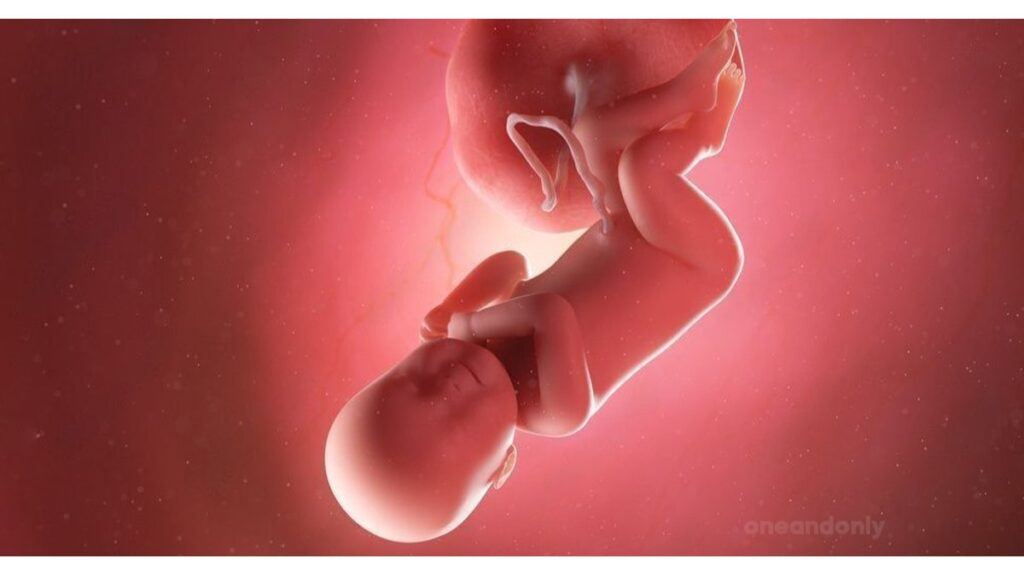Technically, the 40th week means the ninth month of your pregnancy within a short while you are about to hold the little one. Meanwhile, your baby is completely ready to face the outside world, prepare yourself to welcome. Now, you are at the official end of the pregnancy, and time to prepare yourself for the delivery. “Plan your prenatal visits with a healthcare specialist to ensure the health of you and your baby” You may go through various stresses and thoughts in your mind and get disturbed often. In that instance, preparing yourself both physically and mentally is mandatory. Even your body will start producing antibodies that protect your baby. Now, you are about to explore some better things and body changes that happen during the 40th week of pregnancy.
Fetal Development at Week 40
At this time, the baby’s lungs are fully developed and ready to take their first breath of air. The baby’s bones have also developed completely, and the baby is continuing to gain weight. The baby has probably dropped into the pelvis and is in a head-down position ready for delivery. Your baby is sending you messages through kicks and movements, and your belly may look bigger than ever. The baby’s head is likely to be engaged in the pelvis, and you may experience vaginal discharge and pressure on your bladder.Your Body at Week 40
In this week, the body is also preparing for labor and delivery. You may experience some Braxton Hicks contractions, which are practice contractions that help your body prepare for labor. Your cervix may start to soften and thin out, a process known as effacement. Your doctor may also check to see how far your cervix has effaced and dilated. This is known as a cervical exam. You may experience some cramping, lower back pain, and fatigue as your body gets ready for labor. As you get closer to your due date, you may experience an increase in Braxton Hicks contractions and other signs of labor.Hormonal Changes at Week 40
At week 40, your body will produce a surge of hormones (mainly oxytocin and prostaglandins) that signal your body that it’s time to go into labor. These hormones will trigger contractions and cause your cervix to thin and dilate, which is the start of labor. During this time, you may experience increased Braxton Hicks contractions, increased cramping, lower back pain, and fatigue. You may also start to feel a strong urge to push. As you approach your due date, it is important to keep track of any changes that you experience, as they may be signs of labor.Week 40 Pregnancy Symptoms
Some of the common symptoms that happen due to hormonal changes in the 40th week of pregnancy are listed below. Ensure this to prepare your body perfectly to face this.- Increased discharge: This is perfectly normal and is caused by the hormones that prepare the body for labor.
- Diarrhea: This is caused by the body releasing prostaglandins, hormones that help the uterus contract and prepare for labor.
- Increased Braxton Hicks contractions: You may experience more intense or frequent Braxton Hicks contractions as labor approaches.
- Intense nesting urge: You may find yourself wanting to suddenly and intensely clean your home or get everything ready for the baby.
- Bloody show: As the cervix begins to dilate, you may also notice some pink or brownish mucus discharge.
- Water breaking: This is usually one of the last signs of labor when your amniotic sac breaks and fluid gushes out.
- Back pain: This is caused by the baby shifting position and the uterus stretching and contracting in preparation for labor.
- Increased vaginal discharge: This is caused by the cervix thinning and softening in preparation for labor.
- Loss of appetite: This is a normal side effect of labor and is due to the body releasing hormones that prepare the body for labor.
Week 40 Pregnancy Checklist
Every journey of pregnancy should have some checklist that helps in planning all your routines perfectly. On the other hand, it makes you peaceful so ensure the list that is given below- Timeline: It is essential to have a timeline of all your prenatal appointments, ultrasounds, and other tests you may need.
- Shopping list: Make sure you have everything ready such as diapers, baby clothes, and other necessary items.
- Birth plan: Decide on the kind of delivery and the type of care you want during labor and delivery.
- Pain relief options: Consider what types of pain relief options you would prefer to use during labor.
- Contingency plans: Have a backup plan in case of any complications or if you need to go to the hospital.
- Emergency contact: Have a list of people you can call in case of an emergency.
